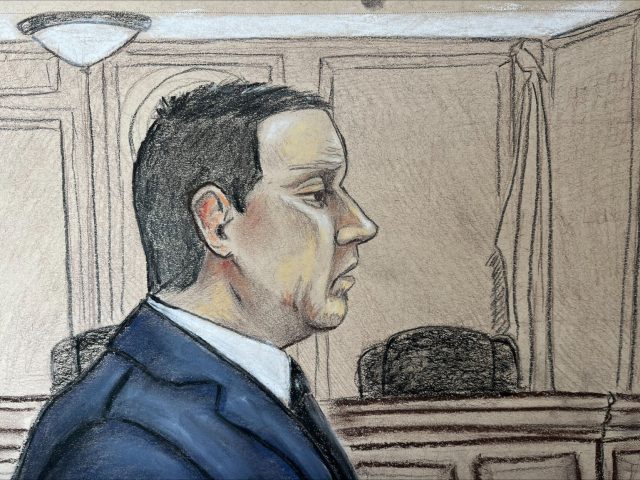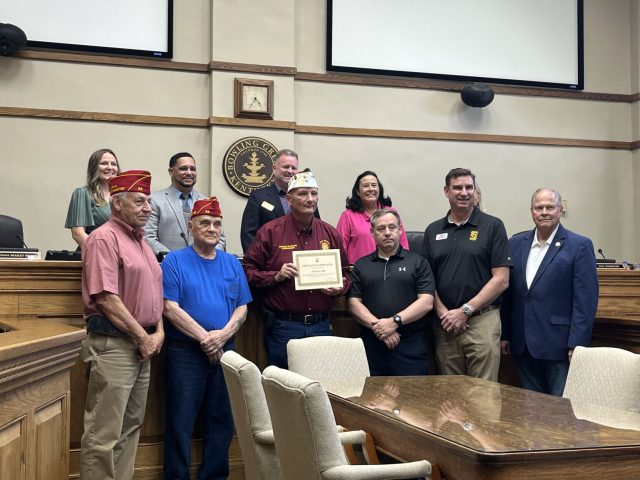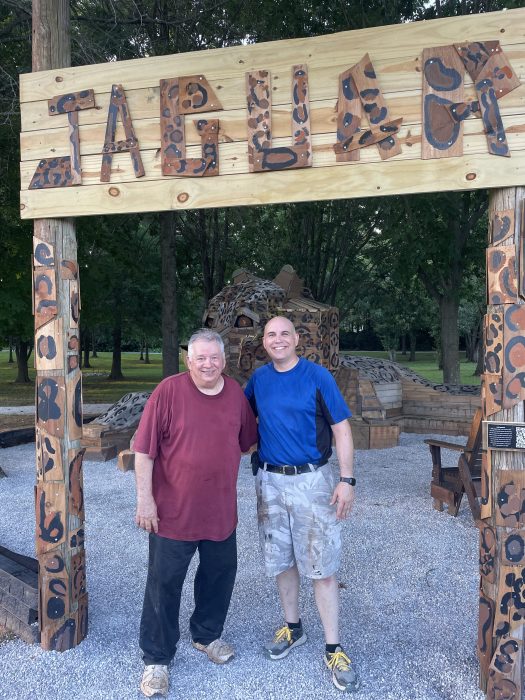Defense makes final argument at Rogers trial
Published 2:48 pm Monday, July 7, 2025


The trial of Brooks Houck and Joseph Lawson entered its third week Monday at the Warren County Justice Center with attorneys for both men making their closing arguments.
Attorney Brian Butler, representing Houck, and attorney Brian Boyd, who represents Lawson, emphatically denied Monday that their respective clients had any involvement with the disappearance and presumed death of Crystal Rogers, who was dating Houck when she went missing on July 3, 2015.
A 12-person jury will eventually be tasked with deliberating whether Houck is guilty or not guilty on charges of murder and complicity to tampering with physical evidence.
Trending
Tenth Circuit Judge Charles Simms instructed the jury to also consider lesser-included offenses of complicity to murder and murder as a principle or accomplice, which considers Houck is guilty without specifying which role in an alleged conspiracy he is believed to have occupied.
Jurors have also been instructed to deliberate whether to convict or acquit Lawson on charges of either complicity to murder or facilitation to commit murder as well as tampering with physical evidence.
Rogers was 35 when she disappeared 10 years ago. Her car was found July 5, 2015, two days after she was last seen, abandoned on the Bluegrass Parkway with her cell phone and other belongings inside it.
Houck, Joseph Lawson and his father, Steven Lawson were indicted in 2023 by a grand jury, with Steven Lawson being found guilty of conspiracy to commit murder and tampering with physical evidence.
Pretrial publicity in Nelson County, where the crimes were charged, forced all trials to take place in Warren County.
Butler’s closing argument was to continue into Monday afternoon following a lunch break, but he stressed repeatedly Monday morning that the government’s evidence was too scant to support a conviction against Houck, characterizing the prosecution’s theory as little more than “assumptions and guesses.”
Trending
“There was one overriding directive and that was to get Brooks Houck,” Butler said. “The evidence is not there.”
Houck was looked at as a suspect by law enforcement soon after Rogers went missing, and multiple police agencies have searched Houck’s home, his truck, the family farm where his mother lives, his brother Nick Houck’s Bardstown Police Department cruiser and a vehicle formerly belonging to Houck’s grandmother.
Butler told jurors that, despite the resources law enforcement have brought to bear on this case, no DNA, blood, bodily fluids, hair or other trace evidence belonging to Rogers has been recovered during those searches.
The government, led by special prosecutor Shane Young, has put on a number of witnesses, including relatives of Joseph Lawson and people who worked alongside Steven Lawson, who have claimed to have overheard either Joseph Lawson or Steve Lawson allude to moving a body or “getting rid of” Rogers, and one witness alleging that he was approached by Houck’s mother, Rosemary Houck, about “getting rid of” Rogers.
Butler said the testimony from those witnesses should be discredited as “garbage,” elicited from Kentucky State Police detectives using coercive interview tactics or offered freely in exchange for leniency in their own criminal cases.
Butler said that evidence that a dog alerted to the scent of human remains outside a white Buick formerly belonging to the Houcks’ grandmother and sold by Nick Houck should be regarded skeptically because the dog’s cross-training to detect both live humans and cadavers throws the reliability of its findings into question, and the car had already been processed by law enforcement, which found no trace evidence associated with Rogers in it.
Butler also addressed the digital recorders found during a search of Rosemary Houck’s home which contained recordings of Brooks Houck at a police interview, his sister testifying before a grand jury, a meeting with an attorney not involved in the trial and apparently inadvertently recorded conversations among family members.
The recordings showed that the Houck family was growing increasingly paranoid as the case progressed and more rumors circulated, forcing them to circle the wagons, Butler said.
“Everyone at this point is out for them,” Butler said. “If you look at everything as sinister, the government is going to presume (Houck is) guilty so they will look for ways to interpret things to say he’s guilty.”
Boyd, arguing on behalf of Joseph Lawson, urged the jury to consider the cell data records as the “North Star” during his closing argument.
Cell tower data, which has come up throughout the trial, shows that Steven Lawson’s phone registered off a number of cell towers heading out of Bardstown late on the night of July 3, 2015, and going back into Bardstown shortly after midnight on July 4, 2015.
Prosecutors say the cell tower records show that Steven Lawson traveled on the Bluegrass Parkway to pick up his son from Rogers’ car, but Boyd countered that Steven Lawson’s phone registered on sections of cell towers facing Boston Road, which runs north of the parkway in a similar path.
There has been evidence that a car that Steven Lawson bought with a former girlfriend was taken from him on the night of July 3, 2015, and ended up at a residence on Boston Road.
Boyd also argued it was unlikely that Houck, a homebuilder who develops rental properties, would engage in a murder conspiracy with the Lawsons, who witnesses said were heavy drinkers and drug users at the time who had a toxic relationship with one another.
“A sophisticated businessman would not hire these fools to do that,” Boyd said.
Boyd also argued that authorities charged Joseph Lawson as a way to build a case against Houck, telling jurors that Lawson and is “just another unfortunate victim of this tragedy.”








